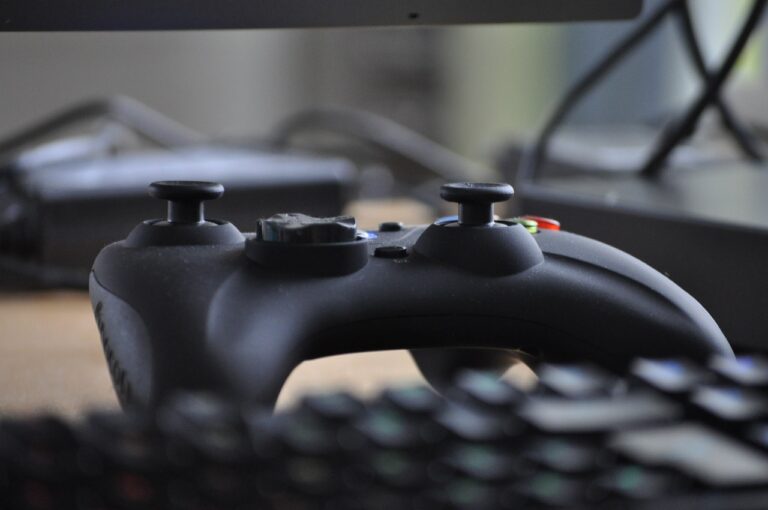The Role of Virtual Reality in Sports Training and Simulation
Virtual reality technology has been making significant strides in the field of sports training, providing athletes with innovative tools to enhance their performance. By immersing athletes in realistic virtual environments, VR can simulate game scenarios, helping players improve their decision-making and reaction times in a controlled setting. This realistic simulation allows athletes to practice under pressure and develop key skills without the need for physical opponents or real-life challenges.
Furthermore, virtual reality has the capability to provide instant feedback to athletes, allowing them to analyze their performance in real-time. This immediate feedback loop enables athletes to make adjustments and improvements quickly, ultimately leading to enhanced overall performance. With the ability to visualize and experience game situations from unique perspectives, virtual reality is proving to be a valuable tool in the arsenal of modern athletes looking to gain a competitive edge.
How Virtual Reality Technology is Revolutionizing Sports Training
Utilizing virtual reality technology in sports training has unlocked a myriad of opportunities for athletes to enhance their skills and performance significantly. By immersing athletes into simulated environments, VR enables them to practice scenarios and strategies in a realistic setting, ultimately improving their decision-making abilities and situational awareness on the field. This innovative approach to training not only elevates athletic performance but also provides a safe space for athletes to experiment and make mistakes without real-world consequences.
Moreover, virtual reality technology offers coaches and trainers valuable insights into an athlete’s cognitive processes and decision-making patterns. By analyzing data collected during VR training sessions, coaches can pinpoint areas for improvement and tailor their training programs to address specific cognitive skills. This personalized approach to training not only maximizes the efficiency of practice sessions but also enables athletes to develop a deeper understanding of their strengths and weaknesses, ultimately leading to enhanced performance outcomes on game day.
• Virtual reality technology immerses athletes into simulated environments
• Enhances decision-making abilities and situational awareness on the field
• Provides a safe space for athletes to experiment and make mistakes without consequences
• Coaches gain valuable insights into athlete’s cognitive processes and decision-making patterns
• Data collected during VR training sessions helps coaches pinpoint areas for improvement
• Personalized training programs tailored to address specific cognitive skills
By leveraging virtual reality technology in sports training, athletes can take their performance to new heights while coaches can fine-tune their strategies based on data-driven insights. This revolutionary approach is changing the way athletes train and prepare for competition, ushering in a new era of innovation in sports training. As VR technology continues to evolve, the possibilities for enhancing athletic performance are endless, making it an essential tool for any serious athlete looking to stay ahead of the game.
The Impact of Virtual Reality on Improving Cognitive Skills in Athletes
Virtual reality (VR) technology has emerged as a powerful tool in the realm of sports training, particularly in enhancing the cognitive skills of athletes. By immersing athletes in realistic and interactive VR environments, they are able to improve their decision-making abilities, situational awareness, and response times. This innovative approach allows athletes to mentally rehearse and simulate game scenarios, leading to sharper cognitive skills when they step onto the field or court.
Moreover, the use of VR in sports training offers a unique opportunity for athletes to train their brains in a way that traditional methods cannot replicate. The ability to manipulate variables, adjust difficulty levels, and receive instant feedback through VR simulations can significantly boost athletes’ cognitive functions, such as memory, attention, and problem-solving skills. As athletes engage in repeated VR training sessions, they develop mental resilience and adaptability, ultimately translating into improved performance during actual competitions.
How can virtual reality technology benefit athletes in enhancing their performance?
Virtual reality technology can provide athletes with simulated environments to practice and improve their skills, leading to better performance in real-life scenarios.
How is virtual reality revolutionizing sports training methods?
Virtual reality allows athletes to train in a safe and controlled environment, offering new opportunities for skill development and strategic training methods.
What cognitive skills can athletes improve with the help of virtual reality?
Athletes can improve cognitive skills such as decision-making, reaction time, spatial awareness, and situational awareness through virtual reality training.
Can virtual reality help athletes visualize game scenarios and develop better strategies?
Yes, virtual reality can simulate game scenarios and allow athletes to strategize and visualize different plays, leading to improved performance on the field.
Is virtual reality technology accessible to all athletes, or is it limited to elite players?
Virtual reality technology is becoming more accessible to athletes of all levels, with many sports organizations and training facilities integrating VR into their programs.







